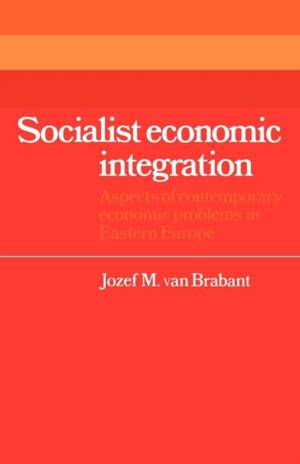
- Afhalen na 1 uur in een winkel met voorraad
- Gratis thuislevering in België vanaf € 30
- Ruim aanbod met 7 miljoen producten
- Afhalen na 1 uur in een winkel met voorraad
- Gratis thuislevering in België vanaf € 30
- Ruim aanbod met 7 miljoen producten
Zoeken
Socialist Economic Integration
Aspects of Contemporary Economic Problems in Eastern Europe
Jozef M Van Brabant
€ 67,95
+ 135 punten
Omschrijving
First published in 1980, this book offers an account of the Council for Mutual Economic Assistance (CMEA), the regional institution overseeing East European economic integration at the time. The author pursues three main themes in analyzing the sluggish pace of East European integration on trade, the role of East-West relations in the integration process, and the future of integration in the 1980s. Firstly he maintains that the integration process was delayed because of the confused postwar situation and disagreement among leaders of the region over a common economic programme for reconstruction and sustained growth. Secondly, he argues that the postwar development strategy and central planning of the economies inhibited regional cooperation. Finally the author contends that the organization and policy guidelines of the CMEA fell far short of what would seem to be needed to further integration.
Specificaties
Betrokkenen
- Auteur(s):
- Uitgeverij:
Inhoud
- Aantal bladzijden:
- 380
- Taal:
- Engels
- Reeks:
- Reeksnummer:
- nr. 30
Eigenschappen
- Productcode (EAN):
- 9780521153041
- Verschijningsdatum:
- 29/03/2012
- Uitvoering:
- Paperback
- Formaat:
- Trade paperback (VS)
- Afmetingen:
- 140 mm x 216 mm
- Gewicht:
- 480 g

Alleen bij Standaard Boekhandel
+ 135 punten op je klantenkaart van Standaard Boekhandel
Beoordelingen
We publiceren alleen reviews die voldoen aan de voorwaarden voor reviews. Bekijk onze voorwaarden voor reviews.











